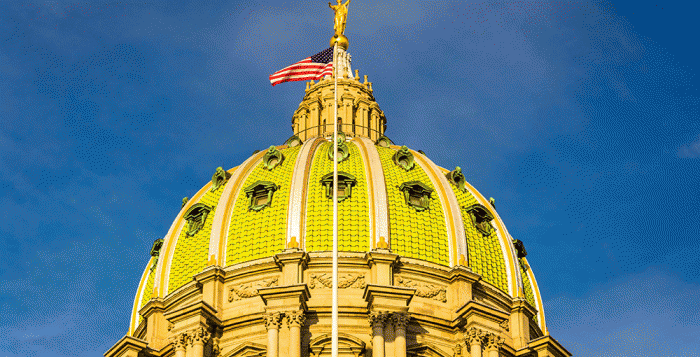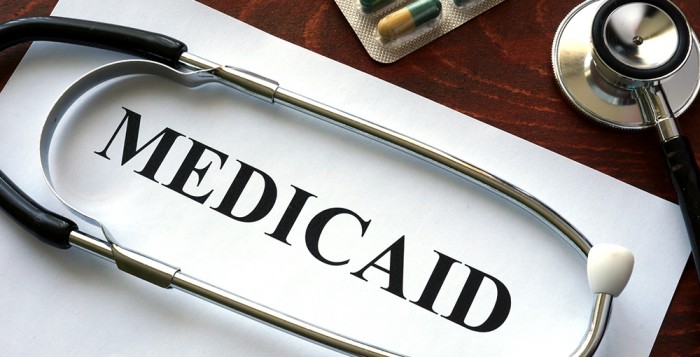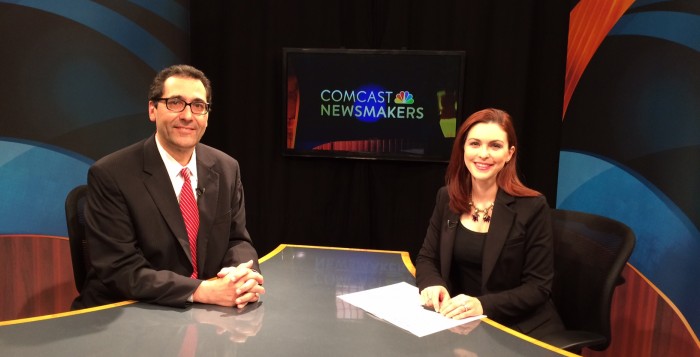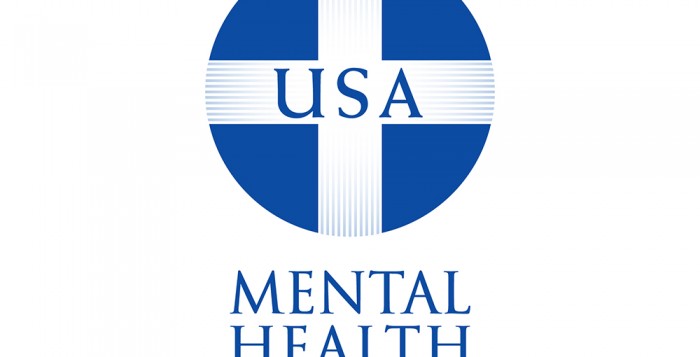RCPA Staff meets with Congressional Members
Early this week, Richard Edley, RCPA President/CEO, met with staffers from Congressmen Costello, Dent, Fitzpatrick, and Meehan’s offices, as well as Senators Toomey and Casey to discuss the current negotiations taking place on health care. RCPA highlighted the financial impacts that the “American Health Care Act” would have on Pennsylvanians and urged the Congressmen and Senators to oppose any proposal that results in cuts or rollbacks of Medicaid. RCPA stressed that Medicaid is the single largest payer of mental health and addiction treatment services in the country. Any proposals that rollback Medicaid coverage or restrict people’s access to treatment will have a significant impact on this vulnerable population.
Additionally, RCPA staff had a productive meeting with Charlotte Pineda in Congressman Fitzpatrick’s office. In that meeting, RCPA gave its support to Congressman Fitzpatrick’s “Road to Recovery Act.” This bipartisan bill addresses the antiquated and problematic IMD Final Rule and will enable Pennsylvania to expand access to residential treatment for substance use disorders, while not intruding on a state’s flexibility to implement care. Jack Phillips, RCPA Director of Government Affairs, will be scheduling additional follow-up meetings with the Congressman and his staff on the “Road to Recovery Act” and other health care issues.
Senate Committee passes SB561
On Tuesday, the Senate passed SB 561 by a vote of 29-20. The senate bill amends the Regulatory Review Act to require the General Assembly and the Governor to approve all regulations with an economic impact or cost to the Commonwealth, its political subdivisions, and the private sector that exceed $1.0 million. The bill has been referred to the House State Government Committee.
RCPA staff has been successful in amending the bill to include legislative language – “the private sector” – because of the economic impact regulations have on health and human service providers’ budgets. RCPA continues to work with the prime sponsor and has reached out to House leadership to let them know that this is an important piece of legislation. Questions, contact Jack Phillips.
Call Congress to Protect Medicaid
Call Congress to Protect Medicaid TODAY!
The Senate looks primed to introduce and vote on health care legislation by the end of this month that would repeal Medicaid expansion and fundamentally restructure the Medicaid program. Call your Senators TODAY and urge them to oppose these changes!
Remind your Senators of the critical role Medicaid plays in providing access to lifesaving treatment services to millions of Americans living with mental illness and addiction. Dedicating a few minutes of your time today can help save Medicaid access for millions of Americans in need.
Instructions for Call-In Day
- Dial this number: 202-224-3121
- Ask for your Senators.
- Share with them this message:
- Your message: “I am calling about the American Health Care Act. I urge you to oppose any proposal that results in cuts or rollbacks of Medicaid. Medicaid is the single largest payer of mental health and addiction treatment services in the country. Any proposals that rollback Medicaid coverage or restrict people’s access to treatment will have a significant impact on this vulnerable population. The House-passed bill directly targets important health care protections like the essential health benefits, protections for those with pre-existing conditions and hurts efforts to achieve parity in health care. I’m calling from [city, state, and zip] and my name is [first and last name].”
Sincerely,
Chuck Ingoglia
Senior Vice President, Public Policy and Practice Improvement
National Council for Behavioral Health
Questions, contact Jack Phillips.
RCPA President & CEO Richard Edley on Comcast Newsmakers
See RCPA President & CEO Richard Edley on Comcast Newsmakers, discussing state agency unification and the RCPA Annual Conference with host Jill Horner. @ComcastNewsmkrs
OMHSAS Division of Children, Adolescents and Families
The Division of Children, Adolescents and Family Services has been added to the Department of Health and Human Services organizational chart under the Bureau of Prevention, Intervention, Treatment and Recovery. Previous versions of the Unification Plan and the accompanying organizational chart did not include a designated division to represent children’s mental health.
The absence of children’s mental health on the overall plan and chart was brought to the attention of the Children’s Steering Committee and the larger RCPA children’s provider members. Numerous comments in support of a children’s division were shared with RCPA leadership.
Richard Edley, RCPA President & CEO, Robena Spangler, RCPA Director of Children’s Division, and Rhea Fernandes from Devereux Advanced Behavioral Health met with the Governor’s team to discuss recommendations to address the concerns. RCPA presented a number of options that were taken into consideration by the team.
We are proud to report that as of June 8, the recommendations were fully implemented and the organizational chart has now been updated to reflect the change. We believe this demonstrates that our voices are being heard and that the Governor’s office does value constructive feedback and input into the successful implementation of the unification plan.
Thank you to the Governor’s staff for their interest and response to this very important issue.
Impact of the AHCA on Pennsylvania: Multi-Association Letter
RCPA has signed onto a multi-association advocacy letter to Senators Casey and Toomey, urging them to ensure that any health care reform protects the vulnerable Pennsylvania citizens who rely on coverage provided currently by Medicaid and the Affordable Care Act (ACA).
GOP House Budget Bill Threatens County Funding
Contact Your Senator to Support Mental Health First Aid Training Funding
 Now that Congress has finalized the FY2017 appropriations process, it is poised to begin working on appropriations for FY2018.
Now that Congress has finalized the FY2017 appropriations process, it is poised to begin working on appropriations for FY2018.
Mental Health First Aid champion Senator Richard Blumenthal (D-CT) is today circulating a letter requesting continued funding for Mental Health First Aid trainings. The program that provides training to emergency first responders, law enforcement personnel, primary care personnel, Human Resources professionals, faith community leaders, veterans, teachers, and students and their parents.
Will you please take two minutes and urge your Senator to sign on to the Dear Colleague letter (text below) supporting Mental Health First Aid training for this important population?
Earlier this year, Representatives Lynn Jenkins (R-KS) and Doris Matsui (D-CA) circulated a similar letter and due, in part, to outreach by National Council advocates, 23 bipartisan legislators signed on to a letter supporting Mental Health First Aid in the House.
Today, we are asking you again to demonstrate that bipartisan, nationwide support for Mental Health First Aid and ask your Senators to sign on.
Thank you for your hard work and advocacy!
Sincerely,
Chuck Ingoglia
Senior Vice President, Public Policy and Practice Improvement
National Council for Behavioral Health
++++++++++++++++++++++++++++++
The Honorable Roy Blunt The Honorable Patty Murray
Chairman Ranking Member
Senate Labor/HHS Appropriations Senate Labor/HHS Appropriations
Subcommittee Subcommittee
135 Dirksen Senate Office Bldg. 156 Dirksen Senate Office Bldg.
Washington, D.C. 20510 Washington, D.C. 20510
Dear Chairman Blunt and Ranking Member Murray:
We are writing to urge you to include the current funding level of $15 million for Mental Health First Aid and important Committee report language in the FY 2018 Labor, Health and Human Services, Education, and Related Agencies (L-HHS) appropriations bill. This important mental health training program will improve education and awareness about mental illness in our communities, giving those trained the ability to intervene and address mental health crises as they happen.
Mental Health First Aid is an evidenced-based education program that helps the public identify, understand, and respond to the signs of mental illness. Since FY 2014, the Substance Abuse and Mental Health Services Administration (SAMHSA) has funded state and local educational agencies to support the training of school personnel including classroom teachers, counselors, and principals. Most recently, the agency has maintained the program’s youth focus, but expanded the eligible grantees to include youth-focused organizations and nonprofits, as well as community colleges.
Last year, as part of its One Mind Campaign, the International Association of Chiefs of Police (IACP) endorsed Mental Health First Aid as an evidence-based practice to improve law enforcement interactions involving persons with mental illnesses. To date, nearly sixty local law enforcement agencies have adopted the IACP One Mind Campaign pledge to train and certify 100 percent of their incoming cadets, sworn patrol officers, and police dispatchers in Mental Health First Aid.
In view of these developments, we are proposing the inclusion of committee report language that would add public safety audiences to the Mental Health First Aid program. Particularly for law enforcement personnel, the crisis de-escalation component of the training protects the lives of both officers and citizens experiencing psychiatric crises.
Therefore, we ask that the Committee add this language to the FY 2018 Department of Health and Human Services (HHS) report:
Mental Health First Aid – The Committee is pleased with the progress of Mental Health First Aid including training more than 740,000 Americans to recognize the signs and symptoms of common mental disorders. In continuing competitive funding opportunities, SAMHSA is directed to include as eligible grantees local law enforcement agencies, fire departments, and emergency medical units with a special emphasis on training for crisis de-escalation techniques. SAMHSA is also encouraged to prioritize training for veterans, armed services personnel, and their family members within the Mental Health First Aid program.
As mental illness impacts the lives of millions of Americans and their families and too many mental health disorders continue to go undiagnosed and untreated, we must make prudent investments to improve mental health awareness in our communities. That is why we urge you to support funding for Mental Health First Aid in FY 2018 and include this important report language.
Sincerely,
Richard Blumenthal
U.S. Senator
Questions, contact Jack Phillips.
RCPA Submits Letter on Agency Unification and Government Efficiencies
Late last week, RCPA submitted a letter to Secretaries Dallas, Murphy, Osborne, and Acting Secretary Smith regarding agency unification and government efficiencies. The letter was also sent to all of the oversight committee chairs. The list of efficiencies was compiled from input received from RCPA members and staff. Questions, contact Jack Phillips.

















